Jonathan Lison is Managing Director at the Israeli Aerospace Manufacturers Federation (IAMF).
“Israel has used the geopolitical problems in the Middle East to develop technologies and knowhow that will provide it with an advantage.”
![]()
The Israeli Aerospace Manufacturers Federation was created at the end of 2011. Why did the need arise to create an institution like this in Israel?
There are a large number of Tier 2 and Tier 3 companies in Israel that have AS9100 certification, which are suppliers to the three big international aviation companies in Israel. The need for the Federation arose from these companies’ desire to become suppliers to the international market, resulting in sales of their products overseas.
What are the main challenges that the IAMF has had to face since the beginning and in which concrete areas of the Israeli aerospace sector is it working?
The main challenge that the IAMF faces is the massive investment needed in order to market and sell aviation parts/products overseas: from participating in international aviation exhibitions, professional overseas tours, building an overseas sales team and supporting the companies in their response to RFQs.
The IAMF works in the commercial aerospace sector with the suppliers of Boeing, Airbus and other OEMs. The main targets are structural parts, from metals and from composite material, and aviation systems.
One of the objectives of the IAMF is to promote Israeli companies in Europe, Asia and North America. What are the main international markets where Israeli aerospace companies are currently working?
Unlike Federations in other parts of the world, the IAMF’s role is not to introduce the companies’ needs and constrains to the government; its objective is to help the companies penetrate the international aerospace market.
The IAMF’s objective is to promote Israeli companies, mainly in Europe and Asia. Israeli aerospace companies currently work mainly in North America. Our recent efforts are focused on targeting the Asian markets: India, Singapore, South Korea, and Japan etc.
Can you tell us about the actions the IAMF is carrying out to reach its goals?
The IAMF succeeded in achieving 50% participation from the government in our members’ international marketing and sales expenses. The IAMF arranged two Aerosupply exhibitions in Tel Aviv, and two Aerosupply exhibitions in India, attracting purchasing managers from all the main manufactures on the market to the event.
We organise tours for companies from overseas, arranging for them to visit our members’ facilities, offering them time to discuss potential opportunities. At least 20 companies from overseas have participated in each tour. The IAMF also arranges visits for Tier 1 and 2 companies in Israel, in order to support them in searching for new technologies and suppliers from among the members of the Federation. Our organization attends several aerospace events in Europe with our own stand, helping reduce the cost for our members, and introducing them to potential customers. We organize international workshops regarding special standards and certifications needed in the market, and our sales team succeeded in attracting a remarkable number of RFQs for our members.
Israel’s aerospace industry has evolved to become a leading exporter of technology and its aerospace firms have become world leaders in unmanned aircrafts (UAVs). In your opinion, what are the Israeli aerospace sector’s main strengths and which aspects should it improve?
Israel’s main advantage in the Aerospace industry comes from the geopolitical problems in the Middle East. Israel has used these constraints to develop technologies and knowhow that will provide it with an advantage. For example, Israel is one of the few countries in the world that has knowledge of building and launching satellites to space, and also one of the few countries in the world that has developed and built combat aircrafts, and is now currently building business aircrafts. UAVs is another area where Israel has a market advantage, competing mostly with North American manufacturers.
I believe the combination of these advantages can result in some interesting products for the commercial aircraft industry.
One of the areas that the Israeli aerospace sector needs to improve in is cooperation with European companies, for the benefit of both entities.
What are the opportunities for collaboration between Israeli and Spanish aerospace companies? Are there ongoing projects in any aerospace programmes?
Spain has an exceptional aerospace industry, with relatively lower working costs than central Europe, and has succeeded in entering many aerospace markets, becoming a major player. In my opinion, there are many opportunities for collaboration between Israeli and Spanish companies, where the Spanish companies can provide access to the European aviation market, while the Israeli companies can bring innovative technologies, helping the Spanish companies gain an international advantage. Cooperation can guarantee the success of Spanish companies in Pan-European RFQs. Spanish and Israeli companies have signed up to Horizon 2020 projects; bringing the advantages of each side to the table would be an option. With the support of the Spanish and Israeli government in joint aviation innovations, many ideas will be launched. For example:
- Hundreds of airports will be built in India, China and Asia in the coming years; new technologies are needed to make the airports more efficient and to improve safety.
- Commercial goods transport could be autonomous, as we are currently developing in the automotive arena in Israel.
- There are different methods of air transportation, reducing cost, risk etc. The IAMF is currently in discussion with a company in Spain regarding this area.
The IAMF brings together institutional partners and companies. Why is private and public collaboration so important in the aerospace sector?
The investments required in the aerospace arena are massive, and development projects are long, leading to long ROIs; this is where institutional partners can support aerospace companies. In addition, universities can support the insertion of new technologies and methods in aircraft infrastructure and safety.

